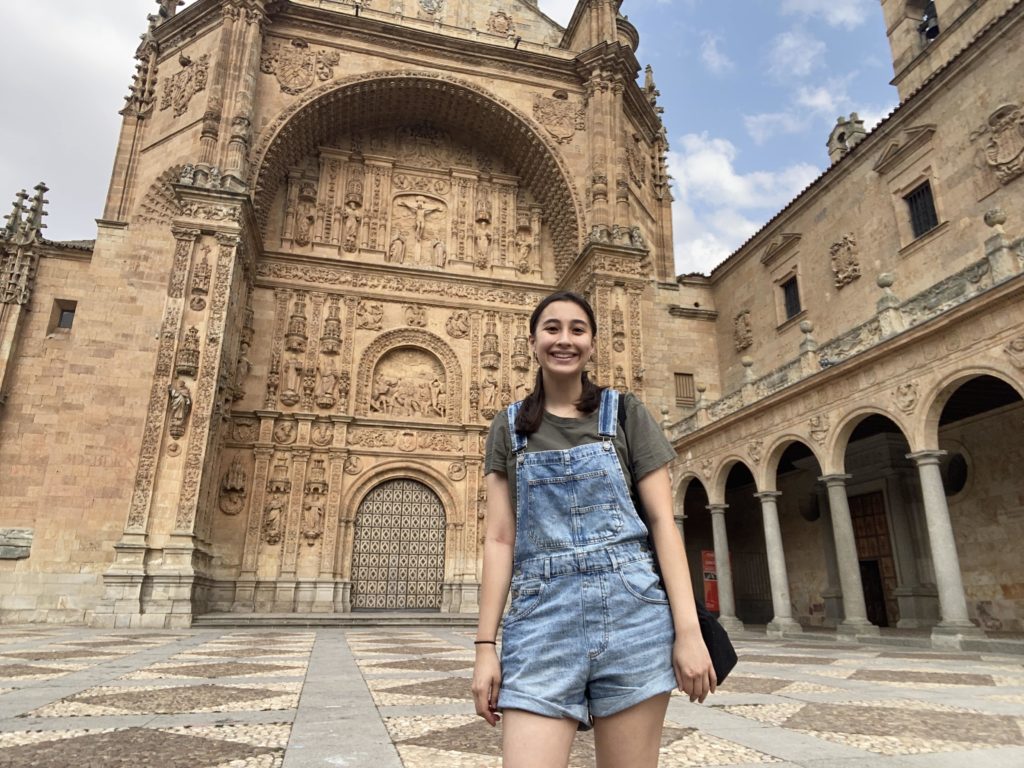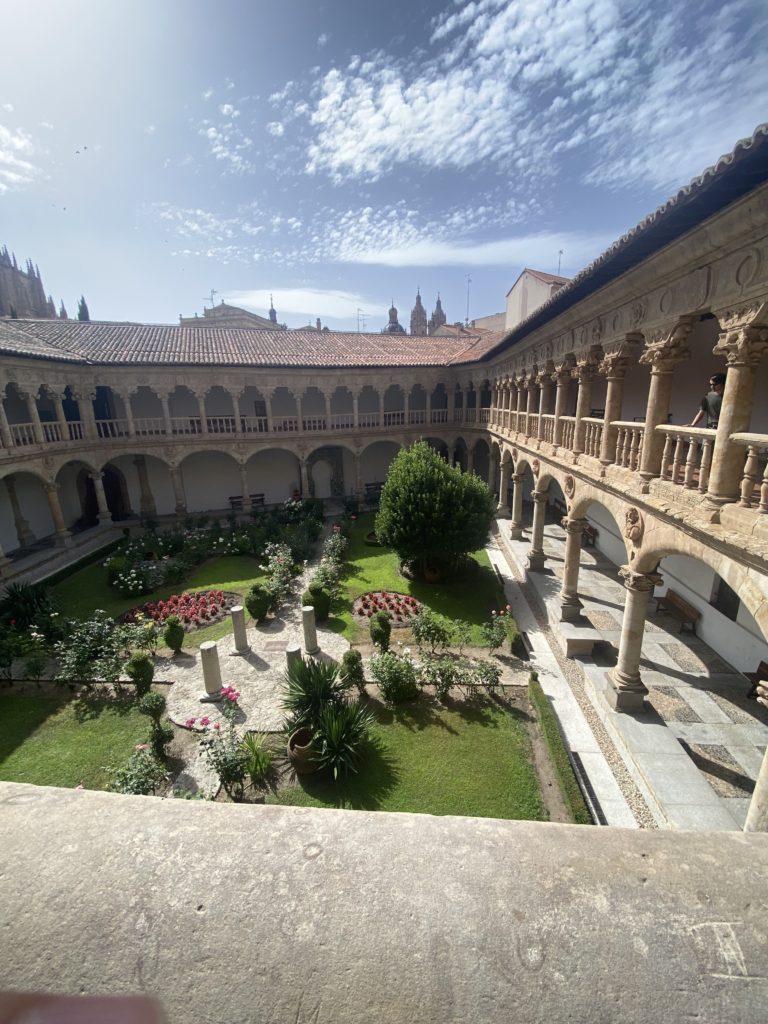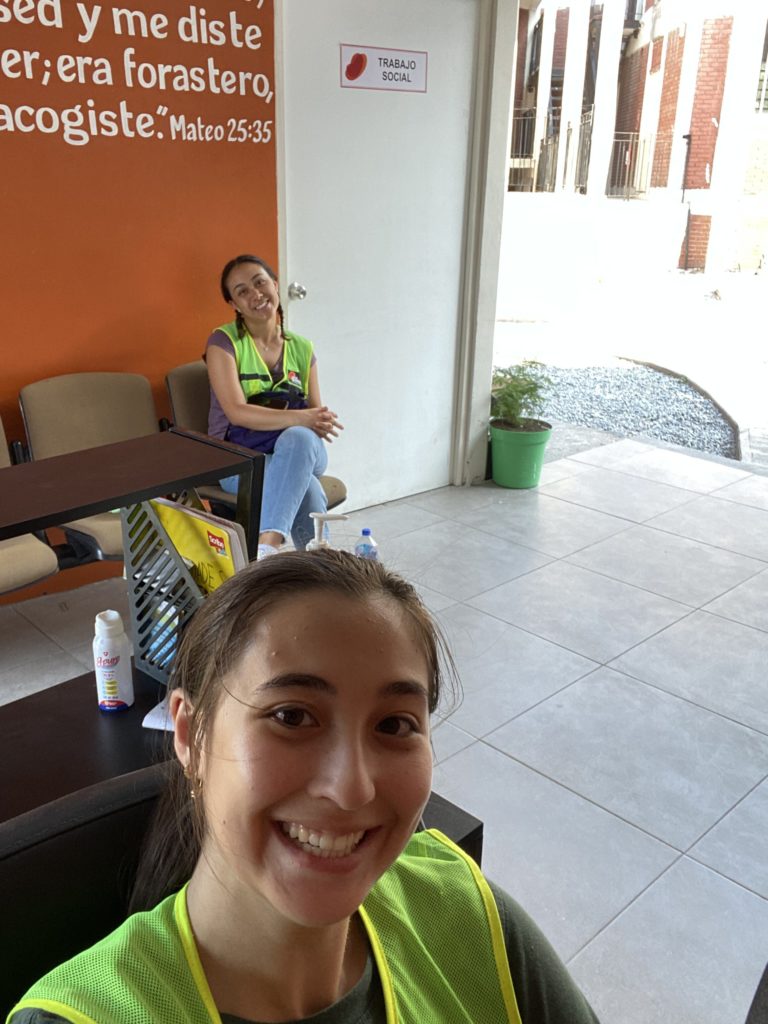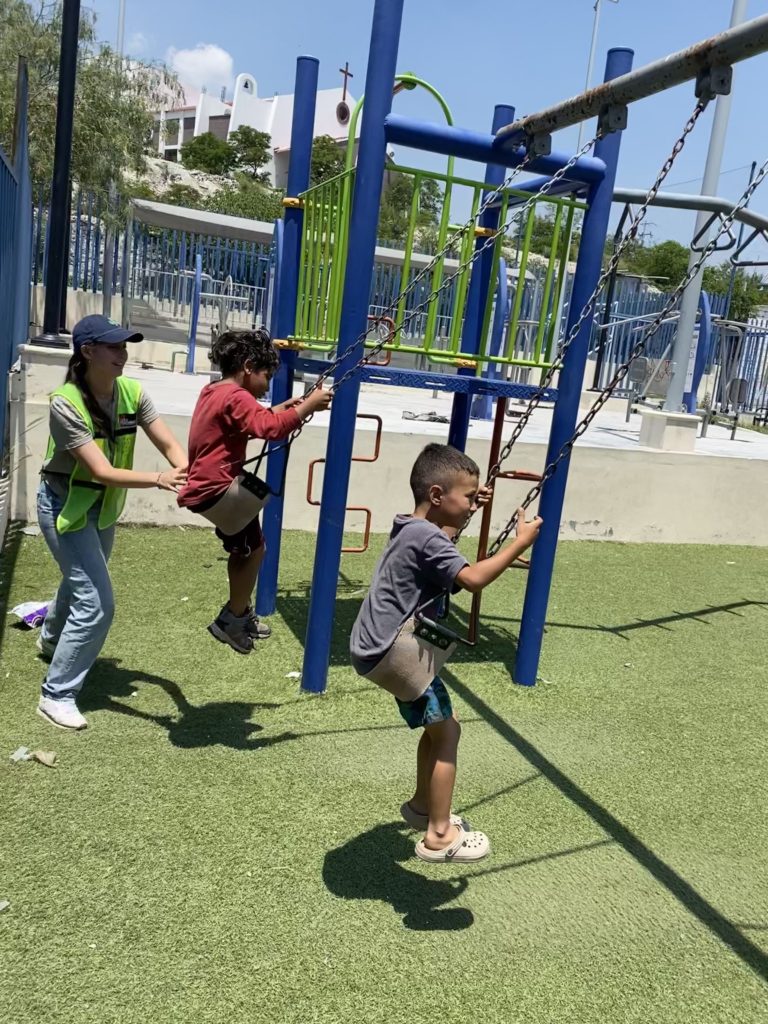
Un poco perdido en la traducción

I have completed my first two weeks of class in Salamanca at Collegio Delibes. My classes consist of 2 hours of grammar, 2 hours of communication, and a 1-hour lecture on culture/ history. I am staying with a host mom for my time in Salamanca, and I absolutely love it! I live about a 15-minute walk from the school and Plaza Mayor so am very central to a lot of the famous sites in Salamanca.
Some critical incidents I have experienced have been with my host mom and an older man who started talking to me in the Plaza Mayor. When I first arrived, my host mom was very surprised by my appearance and kept saying I don’t look like a typical American. She asked, “tienes raízes orientales? (Do you have eastern roots?)” Similarly, the man in the plaza asked if I was an international student studying at the university. When I told him I am from the U.S. he stated, “No, pareces oriental (No, you look eastern/asian).” At first I was very surprised by the use of oriental as an adjective because it usually has a negative/derogatory connotation when used in English. However, I could very clearly tell my host mom and the man I was talking to meant no offense. Upon further research, I learned that the word oriental in Spanish isn’t something to be avoided like it is in English and that Spanish uses occidental (western) in the same way. Regardless of this difference is translation, I think I learned a lot from these interactions about how people in Spain view Americans. I am American and I’ve always felt as though I am therefore perceived as such, so it’s definitely been a bit surprising when people react to my nationality with questions about my heritage.
I am very excited to continue learning more about the Spanish language and culture. Posted below are some pictures of Salamanca and of my class. Hopefully, I will be able to post a video about an excursion I took last weekend to La sierra de Francia and more info about what to do in Salamanca!



Pack With Me!
Antes de llegar

¡Hola y bienvenidos a todos! My name is Kaili Cuenca. I am entering my junior year at ND and will be in Salamanca, Spain from July 15th to August 25th. After taking language classes in Salamanca, I will be studying in Toledo, Spain for the fall semester.
I started learning Spanish at the beginning of my sophomore year and was able to obtain the equivalent of 4 college semesters in 2 since I took accelerated beginning and intermediate courses. While I technically ended the school year at the “intermediate” level, I felt nowhere near being intermediate or conversational with my Spanish. With this said, I really felt I needed to find opportunities during the summer that would allow me to prepare for my fall semester in Toledo, where all my classes will be in Spanish. Therefore, I applied for and received a fellowship through the Center for Social Concerns (CSC) as well as an SLA grant.
As of July 8th, I finished my experience through the CSC fellowship. During this program, I spent 5 and a half weeks at a migrant shelter in Monterrey, MX, and 3 weeks volunteering at a Migrant Resource Center (el Centro de bienvenida) in my own community, San Antonio, TX. Most importantly, these experiences gave me the opportunity to learn about migration and the humanitarian crisis associated with it in an unfiltered and personal manner. With this said, I also got the chance to speak with and hear stories from people who came from a range of different places and cultures (Mexico, Venezuela, Honduras, Cuba, and Guatemala just to name a few). Suffice to say, my Spanish got a bit better, and I feel like I also gained a better understanding of intercultural development and understanding. Intercultural development is not necessarily a linear path with a set destination or mindset. For example, I found it really easy as well as helpful to have a mindset focused on minimization when working with people at the shelter. This makes sense because (from what I experienced) humanitarian organizations strategically focus on commonalities as a means of providing basic needs and protecting integral rights. With this said, minimization didn’t necessarily mean cultural differences were masked. While I did see cultural differences assert themselves through conflict, other times it was simply how different words were used for the same item even though everyone spoke Spanish. Besides falling into the minimization mindset, I also found it at times hard to avoid the polarized mindset, which means you can recognize differences but instead of trying to understand and adapt to them you judge them. Specifically, this was very hard to avoid in Mexico during times when I missed home or was really frustrated with how my day was going. The point of these reflections is that it is okay to fluctuate between mindsets on the IDC (Intercultural Development Continuum). My advice is just to keep track of how your experience is going.


I kept track of my experience in Mexico by journaling and writing reflections for my CSC requirement. I plan to do the same in Salamanca. Ultimately, my goal during these next six weeks is to improve my ability to work through situations using a different cultural mindset. (And of course work on SPANISH!) I’m hoping to do some videos where I will be able to explain more about my specific program, the experience of living with a host family, and fun things like packing. See y’all soon!

